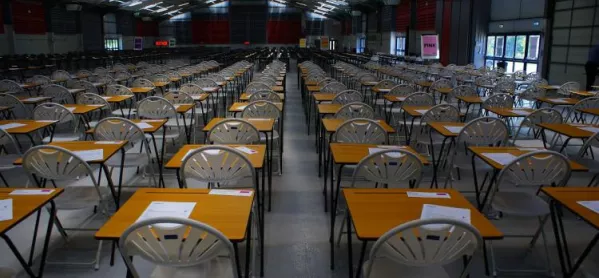A new pilot study to find out if short tests and handwritten exercises can help college students pass their GCSE English resits has been announced by the Education Endowment Foundation (EEF) and J.P. Morgan.
A total of six colleges will take part in the trial of Assess for Success, a programme developed by the Manchester College, and in which 1,200 students will be involved. The project will be evaluated by the Behavioural Insights Team (BIT).
The Manchester College saw a large increase in the number of young people resitting their maths and English GCSE exam since compulsory resits became a funding condition for colleges in 2014. Because of this, the college’s English department developed the Assess for Success programme as a way of assessing their students’ current capabilities, as well as the areas they need to work on.
Short, handwritten exercises
Instead of getting new students to sit the kind of computerised diagnostic assessments used by most colleges, they are instead tasked with completing short, handwritten exercises. These are complemented by regular, bitesize tests that focus on skill areas.
It is hoped that this new study will help teachers to develop a more nuanced understanding of students’ current capabilities as well as training to adapt their teaching appropriately.
Assess for Success is the fourth trial funded by the EEF and J.P.Morgan as part of a joint £5 million initiative to find the best ways to support young people who have to resit their maths of English GCSE.
Since September 2017, the first three trials have reached over 50 colleges and training providers in England and thousands of learners.
More and better evidence
Sir Kevan Collins, chief executive of the EEF, said only one-in-four teenagers had made the grade in English and maths after sitting their GCSE exam a second time in 2016. “It’s clear that simply keeping those teenagers in compulsory education for another year - putting extra pressure on an already squeezed sector - is just not enough,” he said.
He added: “We have to get more and better evidence of which teaching and learning strategies work for 16- to 18-year-olds if we want to give all young people the skills they need to thrive in life. The trial we’ve announced today will give us crucial insights into how we can effectively support learners to make the grade in their resits.”
And Hang Ho, head of the J.P. Morgan Chase Foundation in EMEA, said the organisation was strongly committed to supporting effective solutions that could improve the post-16 educational outcomes for young people, especially who need to resit exams in these core subjects, to ensure they have the skills and knowledge required to compete in the fast-evolving labour market.
Want to keep up with the latest education news and opinion? Follow TES FE News on Twitter, like us on Facebook and follow us on LinkedIn




